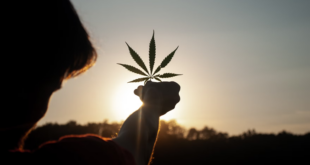
Medical experts are agreeing that the war on drugs has failed. And now a group of 22 medical experts has called for the decriminalization of all nonviolent drugs.
In April, a special UN General Assembly Session is scheduled specifically to discuss drug use, abuse and regulations, The Washington Post reports. The previous 50-years of drug policy will be discussed and re-evaluated. This is due to more support toward the use of medical marijuana and improving general safety measures regarding public health.
The 22 medical experts, in compilation of Johns Hopkins University and The Lancet professionals, said in response to prohibitionist anti-drug policies, that the policies, “directly and indirectly contribute to lethal violence, disease, discrimination, forced displacement, injustice and the undermining of people’s right to health.”
Other key points in their call for marijuana decriminalization are:
- Increased homicides in Mexico since the government made changes to the country’s drug trade.
- Incarceration is used in excessive amounts as a method of drug control.
- Rising numbers of human rights violations from incessant drug control measures that fail.
Dr. Chris Beyrer said, “The goal of prohibiting all use, possession, production and trafficking of illicit drugs is the basis of many of our national drug laws, but these policies are based on ideas about drug use and drug dependence that are not scientifically grounded.”
Decriminalization efforts in Portugal have reduced the number of drug-related deaths including overdoses. The commission plans to use this information and the marijuana legalization efforts in the U.S. as footprints, or stepping-stones of discussion topics to come to a consensus. The UN is especially considering marijuana decriminalization, or experimenting with full legalization of some drugs (marijuana included).
The commission of medical experts also added that, “Although regulated legal drug markets are not politically possible in the short term in some places, the harms of criminal markets and other consequences of prohibition catalogued in this Commission will probably lead more countries (and more U.S. states) to move gradually in that direction – a direction we endorse.”
Latin American and several other countries are using the progress with marijuana legalization in some aspect in the U.S. as blueprints for their countries to move forward.
 ONLY 420 | Cannabis Culture Everything 420
ONLY 420 | Cannabis Culture Everything 420






